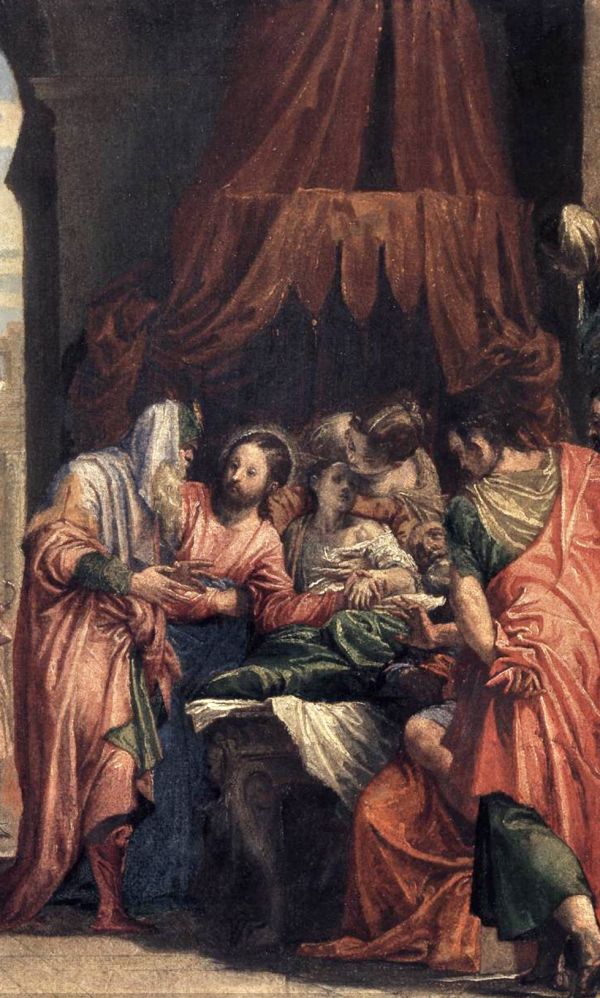Faith and Healing, or exclusion
(Mk 5:21-43)
In Rome, at Mk’s time, the situation of confusion generated by the civil war seemed likely to become lethal for the survival of the persecuted young communities, wich some mocked (v.40).
Under the obsessive diseducation of spiritual leaders, particularly on the sense of sin and unworthiness - in addition, the religious terror of demons - everything seemed to sow panic.
Fears absorbed much of the emotional resources - worsening people's situation (v.26).
For this reason the woman moves in taking the Master by surprise, «from behind» (v.27) - indeed, by stealth! But hers was not sacrilege at all.
The transgression of the “defiled” - who even follow their conscience [at that time, a double shame] is grasped by the Lord as an expression of living Faith (v.34)!
«Daughter»: Christ welcomes every "woman" into his Church, and in her He values all those who are kept at a safe distance.
Nor does expect her to go to the Temple to offer the sacrifice prescribed by the Law.
He only says: «Your Faith has saved you. Go in Peace».
That is to say: Go ahead towards the joy of a full life, without the usual judgment of inadequacy on the back.
In fact, even the leader of ancient devotion can only generate sons [that is, a whole spiritual people] already dead from the start (v.35).
But from the moment he turns to the authentic Master, he begins to make transition from elementary religiosity to Faith (v.36).
In this way, the premature end regenerates life, youth, happiness.
The message is not only for the traditional synagogue, but also for the greatest exponents of the nascent Church: the proud Peter, James and John (v.37).
Precisely because they are authoritarian, hasty and stubborn - all other community worshippers are well advised to keep their distance from an ambit that cries out in despair, because it still imagines physical death as an impassable fence (v.38).
And here a new religious transgression arises: the book of Leviticus forbade touching a dead body (v.41).
With this incredible gesture, Christ reaffirms: whoever observes the law that doesn’t humanize, himself produces death and goes to meet death.
The concrete good of the real person is absolute value. God doesn’t look at merits, but at needs.
And personal Faith is the divine Gold that realizes the inner vision.
Indestructible Relationship Quality: such Action-compassion goes beyond ‘death’ that spoils everything.
Precisely, attracting and fulfilling what the same gesture believes (vv. 23.28.34.36.39).
The term «immortality» doesn’t exist in Hebrew Bible.
Israel's slowness in believing in life without end is illuminating: it makes us understand that before believing in the future world, it’s necessary to value and love existence in this world.
When we will be passionate about it in the same way as the Father, the silence of a space of our own, unrepeatable, fragrant, blooming from a genuine Harmony will arise.
Then the Lord will transform us, He will communicate Himself to us (v.43), He will make us similar to Him and able to withstand challenges.
Finally able to untie knots of death and help the suspensions of others.
[Tuesday 4th wk. in O.T. February 4, 2025]












